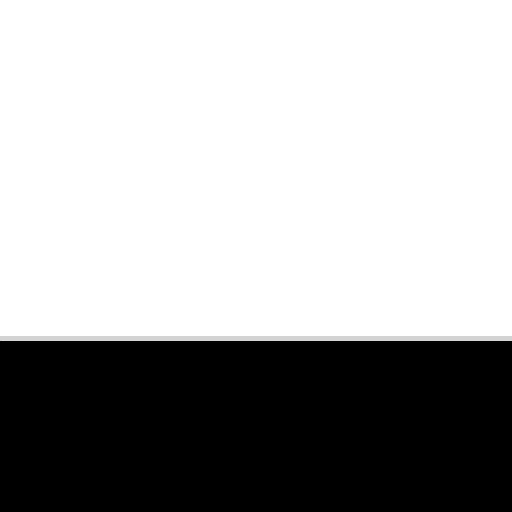While the lasting effects of COVID-19 (coronavirus) on business are unclear, the immediate economic impact has been severe. Recovery still seems far off especially as states grapple on when to reopen and how soon testing will be made widely available.
Even as business owners understand that safety for employees and customers is a priority, financial relief is dire. Data gathered from the University of California at Berkeley underscored the extent of the pandemic’s impact, citing that as much as a third of the U.S. economy may be shut down. Unemployment could reach 25% while tens of thousands of small businesses are barely surviving.
In an effort to collect the latest insights and identify top challenges and opportunities, the Better Business Bureau (BBB) conducted a pulse survey with businesses and customers across North America on the perceived impact of the pandemic and how it’s changing consumer behavior. The findings of this report provide a snapshot of the current economic landscape and illustrate the needs businesses have when it comes to responding and rebuilding from COVID-19.
More importantly, this report reveals realistic opportunities for businesses to pivot, refocus, and strategize for a new future.
Unemployment could reach 25% while tens of thousands of small businesses are barely surviving.
Top Business Challenges
In late March, BBB asked Accredited Business owners what they assume would be the biggest challenges facing their business. Cash flow was at the top, followed by keeping up with customer demand and paying employees.
Of the more than 1,300 BBB Accredited Businesses surveyed between March 23-27th, 70% believed the coronavirus outbreak would have a significant negative impact. Construction, remodeling, and building trades were the top industry groups that are most likely to report a positive outcome with sales and growth.
“The trickle-down effect for those unemployed or self- employed with dwindling business will be a tremendous hit to the economy… Our main challenge will be to try to maintain some level of normalcy.” – Business owner
Financial Security
Financial uncertainty is one of the biggest drivers of the perceived negative impact among businesses. More than half of business owners surveyed say they do not have enough cash or credit to last them past 60 days should another unexpected crisis arise. Small and newer businesses are at high risk, especially among companies with 10 or less employees and in business fewer than six years.
This leads to many companies changing the way they do business – from eliminating expenditures, leveraging technology, or adopting a work-from-home practice for employees. While 36% of businesses say they will likely reduce staffing, 30% of business owners tell BBB they will have to change or adapt to a new business model.
Recently, HubSpot began posting week-over-week data trends for core business metrics including sales engagements. HubSpot discovered, after several weeks of declines in deals created and closed. that many businesses have been able to pivot and move forward driving sales up by as much as 8%.
Business Needs
The need for financial relief is undeniable. But what many business owners are telling BBB is that marketing and communicating with customers also remains an essential need. BBB created a coronavirus toolkit for small businesses that includes email templates, communication best practices, and business checklists.
The top information needs for businesses are: funding and support options (60%), how to communicate with consumers (17%), human resources information (8%), technology for remote working (4%), and connecting with other businesses (3%).
Most businesses (67%) get their information from the internet, followed by government (51%), email (51%), and social media (46%).
Truth in Advertising
Consumers, too, are feeling the pinch as allegations of price gouging skyrocket. Reports to BBB show a 279% increase in the number of price gouging reports from January and February (before the pandemic fully hit North America) to March and April when the economic shut-down was in force. Masks, toilet paper and hand sanitizer are the top items reportedly being sold for as much as double the usual cost.
BBB Standards for Trust can be a guiding light for businesses navigating through these trying times, especially around advertising honestly. It’s recommended that businesses do not fuel fears, but instead act as a calming and reassuring partner to customers. BBB’s Code of Advertising explains what businesses need to know about advertising claims.
Price Gouging Allegations: 34
Misleading or Confusing Claims About the Product: 20
Hidden Contract Terms, Fees, or Additional Charges: 10
Bait and Switch: 7
TOP INDUSTRIES WITH PRICE GOUGING ALLEGATIONS
ONLINE RETAILERS
GROCERY STORES
CABLE TV PROVIDERS
NEW CAR DEALERS
PLUMBERS
Customer Complaints
In March 2020, BBB saw a 10% spike in the number of complaints over the previous year, and nearly 7,000 COVID-19 related complaints and customer reviews. While airline and travel agencies took a hit in March as people scrambled to cancel vacation plans, online retail complaints surged in April, with customers complaining about delivery options, price gouging, and low-quality products.
Hardest Hit Industries:
Travel Agency: 634
Airlines: 527
Online Travel: 388
Vacation Rentals: 372
Hotels: 185
Property Management: 125
Online Complaints
Slow delivery/No Delivery: 40 %
Alleged Price Gouging: 18.0 %
Incorrect Delivery: 8%
Faulty/Inferior Product: 7%
Other: 27%
Overall, top coronavirus-related complaints reported to BBB centered around cancellations, especially travel-related bookings, sporting events, fitness centers, and education classes.
Source: IABBB Research 2020
What This All Means
There are some bright spots and potential opportunities for trustworthy businesses. Data suggests that a new customer is emerging – one who is more aware and intentional about how they spend their money and who gets their business. For BBB Accredited Businesses, this presents an even greater opportunity of elevating their brands by differentiating themselves with the BBB Standards for Trust.
- Build Trust – Establish and maintain a positive track record in the
- Advertise Honestly – Adhere to established standards of advertising and
- Tell the Truth – Honestly represent products and services, including clear and adequate disclosures of all material
- Be Transparent – Openly identify the nature, location, and ownership of the business, and clearly disclose all policies, guarantees, and procedures that bear on a customer’s decision to
- Honor Promises – Abide by all written agreements and verbal
- Be Responsive – Address marketplace disputes quickly, professionally, and in good
- Safeguard Privacy – Protect any data collected against mishandling and fraud, collect personal information only as needed, and respect the preferences of consumers regarding the use of their information.
- Embody Integrity – Approach all business dealings, marketplace transactions, and commitments with
“Today’s consumer appreciates honesty. Making a claim and not delivering on it will not work. All the more important in the new normal that consumers will return to in the following months.”- Nielsen, April, 2020
The New Customer
In an April BBB/Google survey with consumers, BBB found that nearly half of consumers are more selective on which businesses to trust. In 2019, nearly 14-thousand businesses ranked credibility and customer care as the top benefits of BBB Accreditation, followed by integrity and trust.
In the BBB research, consumers also listed what type of business practices they favored during this pandemic, especially as their needs and demands continue to evolve. Social distancing and good hygiene remain at the top with 35%, followed by businesses that are readily available, and those transparent about refunds and cancellations.
Hygiene/Protection/Social Distance: 35%
Availability/Speed: 27%
Handling Refunds/Cancellations Well: 15%
Other: 23%
With trust on the mind of many consumers, we found that more people are visiting BBB.org to find Accredited Businesses over businesses that are not affiliated with BBB. Accredited Businesses not only meet and exceed BBB standards, but are companies that support the vision of an ethical marketplace where buyers and sellers trust each other. And while businesses are under no obligation to seek Accreditation – a 2017 Nielsen survey conducted with BBB showed that people familiar with the BBB Seal are 81% most likely to trust that business.
Consumer Inquiries to BBB Business Profiles are up 16% year over year for the months of March and April, to over 27 million.
Breaking New Ground
Today, many businesses are forced to make tough decisions for their businesses, both during the pandemic and rebounding from it. According to BBB’s survey, business owners expect the economy to recover when the pandemic ends, making preparation for recovery even more essential. Others have used this time to improve efficiencies, support the community, and rearrange finances.
Business Needs
Information/Support/Guidance: 68%
Marketing/Communication/Advertising/Leads: 18%
Advocacy: 8%
Financial Support: 6%
68% of BBB Accredited Businesses say they need information, support, and guidance to navigate these trying times, and BBB has responded with webinars, resources pages, toolkits, and more.











